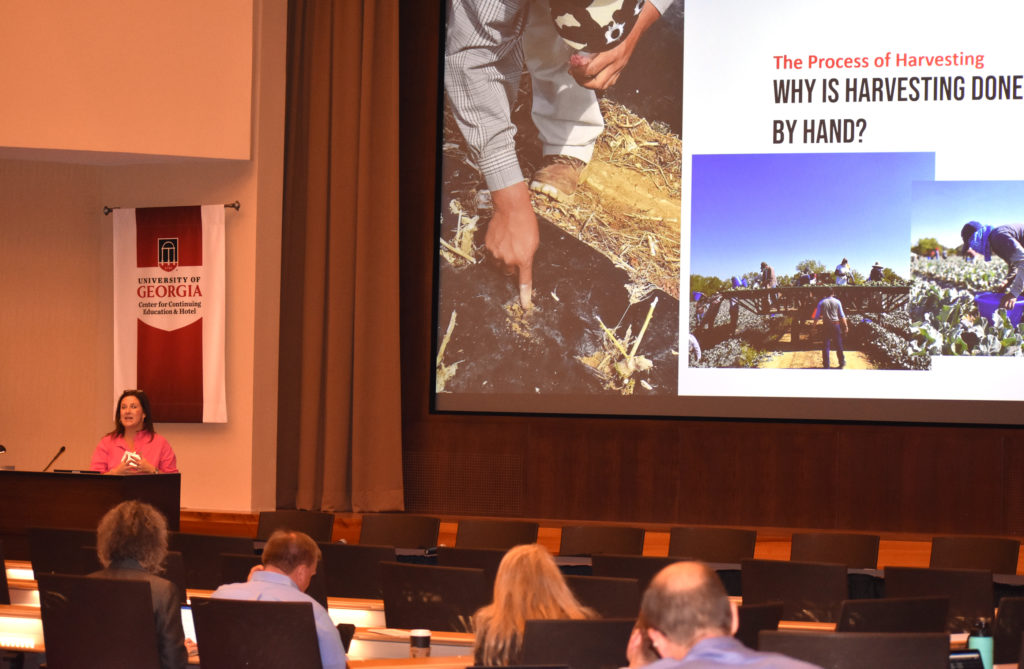By Clint Thompson
Precision agriculture innovations are required for sustainability to be a reality for specialty crop producers in the Southeast.

That is why the International Conference of Integrative Precision Agriculture was held in Athens, Georgia in May. That is why growers presented their concerns to industry specialists like Ash Sial, University of Georgia (UGA) entomologist. He identified the main needs that technology needs to address.
“As far as precision Ag, the No. 1 thing that we need are tools to predict things; predict weather if that is possible, as far as we can go; the farther the better. Sometimes weather, no matter what you do, weather can come in and change things for the worse. That’s what we need, No. 1, from a precision Ag standpoint,” Sial said. “Is there a way to develop technology to gather data, summarize it and present it in a way that farmers can use to be prepared on time for any disaster that is on the way?
“No. 2 is using remote sensing technology to sample for the pests instead of actually going physically in there. Not all pests are everywhere. Not all pests are visible. Some pests become visible after they have already caused damage, which is too late.”
Technological advancements are needed for a specialty crop industry that is highly reliant on labor to plant and harvest its crop. Labor highlighted the concerns shared during the conference. A challenge in the specialty crop sector is devising artificial intelligence to harvest a crop that is sensitive to consumer demands. Any damage to a vegetable or fruit during harvest makes it less likely that it would be purchased by a consumer.
“Growers need help because they don’t know exactly what to do when things have become so serious. As a scientist, with so much technology being available, it’s just putting technology into the right use,” Sial said.









